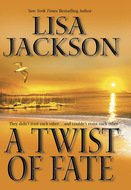Книгу нельзя скачать файлом, но можно читать в нашем приложении или онлайн на сайте.
Читать книгу: «The Santiago Sisters»
Praise for the author
VICTORIA FOX
‘Quite simply the best’
Daily Express
‘Must Read’
Real People
‘Jackie Collins for the modern gal’
Grazia
‘Lashings of scandal, shocking secret pasts and steamy romance’
New
‘A proper guilty pleasure’
Now
‘Oozes glamour and revenge. The ultimate beach read’
All About Soap
‘If you think the Made in Chelsea crew live a glitzy life, you ain’t seen nothing yet’
Heat
‘Just too exciting to put down’
Closer
‘Always a fun read!’
Jackie Collins
‘Pour yourself a glass of Pimms because this is guaranteed to get you seriously hot’
Cosmopolitan

For Charlotte
(when you’re big enough)
Table of Contents
Cover
Praise for the author VICTORIA FOX
Title Page
Dedication
Prologue
PART ONE
1
2
3
4
5
6
7
8
9
10
PART TWO
11
12
13
14
15
16
17
18
19
20
21
22
23
24
25
PART THREE
26
27
28
29
30
31
32
33
34
35
36
37
PART FOUR
38
39
40
41
42
43
44
45
46
47
48
49
50
51
52
53
54
55
56
57
58
59
60
61
62
63
64
65
66
67
68
69
70
Epilogue
ACKNOWLEDGEMENTS
Endpages
Copyright
Prologue
Winter, 2014
NYchronicle.com/News/US-News/Tess-Geddes-disappearance
Live Feed, 10.31AM:
Concerns are mounting over the disappearance two nights ago of Hollywood superstar Tess Geddes. Ms Geddes was last seen leaving her New York home at 21:00 on Friday 19 December and no contact has been made with her since. The vanishing is described as ‘out of character’, despite the actress’s turbulent history. Friend and co-star Natalie Portis released this short statement yesterday: ‘Tess is a fighter. We knew she’d suffered the year from hell—but she knows better than that. She wouldn’t do anything stupid.’
It emerged this morning that Ms Geddes was accompanied by an unidentified female companion on the night of her disappearance. Police are now engaged in a hunt for this person, and witnesses are urged to come forward.
Her scent was deep: familiar and strange both at once. It filled the stairwell; savagery and glamour—one a relic from her old life, the other an emblem of her new.
Fear in her eyes, a pleading fear, begging for understanding. But it was too late for that. It was too late for sorry and too late for tears. She had arrived at her worst nightmare, and when that was over it would all be over: their history, their love, their hate; the cord that bound them unravelled at last. How to kill her? What method could rival her treachery, her greed, her betrayal; what could recompense her evil?
They should have stayed as one. They couldn’t survive apart. It was fate, forever destined to come to this: from birth, to death; two halves of the same whole.
PART ONE
1994—2000
1
Argentina
She wondered, sometimes, if they had started off as one person. All things combined, until a silver blade entered their mother’s womb and curled them apart. She pictured it dividing their heads, their shoulders, their hearts, their hands, and whether or not it had hurt. The change was immediate. Heat poured into her sister, red like fire. Cool stayed behind, with her, blue and quiet and longing for the warmth.
Calida Santiago dismounted her horse and knelt beside the wheezing guanaco. The animal was like a llama, with cinnamon fur and small, straight ears, and had broken its leg; the damaged limb was splayed behind the soft white pillow of its underbelly. She put her hand out to stroke it, and it flinched, fur trembling.
‘Is it going to die?’
Diego, their father, tethered the horses. He secured the guanaco’s neck in the crook of his arm to stop it biting or twisting, while he felt the fracture and then the pumping strain of its heart. ‘We should do what’s right,’ he said, removing the carved knife from his gaucho belt. Diego’s riding trousers were stained with dirt and sweat, his face obscured by dust. The facón blade glinted in the dwindling afternoon sun.
‘Take Teresita away.’
Behind them, Calida’s twin sat sidesaddle on their shared horse. At ten years old, they should both have been children. But Calida, for all of her two-minute head start, would always be the elder. It was what life had decided: she had been built the sensible one, the one who looked out for and looked after. Occasionally she wished to be as carefree as her sister, to dare a little more, to risk, but it wasn’t in her nature.
‘I don’t want to,’ protested Teresita. ‘I want to see.’
Calida took her sister’s dirt-smeared hand, as native to her as her own. Grudgingly, knowing her father couldn’t be defied, Teresita slid from the saddle.
‘Papa will make it better,’ Calida said. ‘Come on, let’s go for a walk.’
Teresita wore a dust-cracked scowl too determined for her years. She was wilful, stubborn, impossible once she set her mind to something, resolute to have her way no matter the cost: she was their mother’s daughter through and through.
The twins picked their way through sun-charred bramble, Teresita trailing behind like a disgruntled wolf cub, and into a ravine that twinkled with water. Calida crouched to rinse her face. The dust got everywhere; it was the taste of home, grit that caught in their teeth and ears and powder that clung to their eyelashes. All around, the dry green Patagonian steppe rolled into the distance; sharp peaks severed the vista and then flattened into grassy plains, like the whipping surface of a vast and angry sea.
‘What’s Papa doing?’ asked Teresita.
‘Nothing. Forget it.’
But Teresita wouldn’t. She always demanded to know, to find out. She was always asking these dumb questions that Calida didn’t know the answers to.
‘I can hear it screaming. Does it hurt?’
‘No,’ said Calida, putting an arm round her. ‘Come here.’
She drew Teresita close. Her sister’s hair smelled of the horses: the rich, solid scent of the saddlebags and the coarse rope of the reins, the leather stirrups, the tangy metal bit they put between Paco’s teeth and heard him crunch on like an apple core.
The guanaco shrieked a final time. Teresita pushed against her; whether with fear or resistance it was hard to say. Calida had felt her twin’s push from the very beginning: when they were born, a strength driving behind her, indignant at having been left behind. Hurry up, come on, get out, it’s my turn … When she had been old enough to identify it, and recognise in Teresita’s mop of black hair and huge jet eyes the sister she would love until the ends of the earth, Calida sensed that push so often in her life. Teresita’s struggle when she was crying and didn’t want to be comforted; her wishful gaze, reaching beyond the perimeter of the farm and into the frightening unknown; her resentment of gravity when all she longed to do was fly. Calida stayed on the ground, arms out, ready to catch her if she fell.
But there was a pull, too; a force of belonging that could never be changed and never be dimmed. It was blood, a mirror heartbeat, a laugh that echoed her own. At night, when they lay in their bunks, giggling in the dark or making hand shadows on the wall, whispering secrets that didn’t need to be told because they already belonged in each other’s hearts, Calida knew that this connection was a rare and precious gem. Faith. Trust. Devotion. Loyalty. No matter what, the sisters were there for each other.
‘What’s going to happen when we’re grown up?’ said Teresita now.
‘I don’t know. I haven’t thought about it.’
‘Mama says not to do what she did.’
Calida didn’t reply. Instead, she said: ‘We’ll be together, though, won’t we? So it doesn’t matter. We’ll always be together, you and me. Promise?’
Teresita ran a hand across the brittle earth. She blinked against the sun, and gave Calida a smile that warmed her bones. ‘Promise. Can we go back yet?’
Calida went up the ridge to check. Diego was untying the horses. The guanaco was gone and she saw the slash of blood on her papa’s bombachas and dared herself not to look away, to be the big girl Diego always told her she was.
Paco chewed lazily on a tuft of yellow grass.
‘Come on, then,’ said Calida.
Every day the sisters went riding with their father, while Julia stayed at home. It had been that way since time began. Their mother rarely emerged and the girls knew not to make noise in that part of the ranch, especially when Julia was resting.
Calida tried not to feel sad at how, on Julia’s better days, she would invite Teresita into her bedroom; Calida would listen at the door, shut out of their exchange, desperate to hear and be part of the confidence, until she heard her papa’s tread and shame directed her away. Julia spent hours brushing Teresita’s ebony hair and singing her songs, telling her stories of the past and stories of the future, assuring her what a magical woman she was destined to become. Her mama adored Teresita, because Teresita was beautiful. The twins’ division was responsible for this injustice, marking their physical difference: Teresita as exquisite and Calida as average. Calida knew there were greater things in life than beauty, but still it hurt. She wasn’t special, or in any way extraordinary, like her sister. If she were, her mama would love her more.
Once upon a time, when Julia had first been married, she herself had been a magical woman. Calida had seen the evidence, photographs her father had taken when they had worked the land as a couple: Julia against the melting orange sunset, her head turned gently away and her hair in a thick plait down her back. The horse’s tail had been frozen in time, a blur when it had swished away flies. Calida loved those pictures. This was a woman she had never known. She longed to ask her mama about that time, and what was so different now, but she was afraid of making Julia angry.
Julia told Teresita those things, anyway. At least she was telling someone.
Summer 1995 was unbreakingly hot. Sunshine spilled through open doors, the heat bouncing off wood-panelled walls. The twins were in the kitchen, paper pads balanced on their knees. Their home tutor was a harsh-looking woman called Señorita Gonzalez. Gonzalez was thirty-something, which seemed ancient, and the way she wore her hair all scraped back from a high forehead and her glasses on the end of her nose only made her more alarming. She wore heavy black boots whose tops didn’t quite reach the hem of her sludge-coloured skirt, so that a thin strip of leg could be seen in between. In classes, Teresita would giggle at the black hairs they spied lurking there, and Calida had to tell her to shut up before they got told off. Gonzalez was strict, and wasn’t afraid to use their father’s riding switch if the occasion arose.
‘I’m hot,’ said Teresita, kicking the floor in that way she knew drove Señorita Gonzalez mad. Calida’s own legs were stuck to the wooden chair, and when she adjusted position the skin peeled away with a damp, thick sound.
‘Díos mio, cállate!’ hawked Gonzalez, scribbling on the board. ‘All you do is moan, Teresa!’ It was only the family who called her Teresita: it meant ‘little Teresa’.
Teresita stuck her tongue out. Since the teacher’s back was turned, this failed to have the desired effect, so she tore off a sheet of paper, balled it up and tossed it at Gonzalez, nudging Calida as she did so, to include her in the game. But Calida didn’t like to stir up trouble. The woman froze. Calida gripped the seat of her chair.
‘You little—!’ Gonzalez stormed, blazing down the kitchen towards them, whereupon she grabbed Teresita’s hair and hauled her up, making her scream.
‘Ow! Ow!’
‘Stop it!’ Calida begged. ‘You’re hurting her!’
‘I’ll show you what hurts, you disrespectful child!’
Gonzalez dragged Teresita up to the cast-iron stove and launched her across the top of it. ‘That hot enough for you?’ she spat. Calida felt the impact as sorely as if she were the one being assaulted: Teresita’s pain was her pain. But her sister stayed silent, contained, her dark eyes hard as jewels and the only giveaway to her panic the lock of black hair that hovered next to her parted lips, blown away then in, away then in, flickering with every breath. Gonzalez took the riding switch from behind her desk and drew it sharply into the air. ‘Time for a lesson you’ll really remember!’
‘Wait!’ Calida leaped up. ‘It was me. I threw the paper. It was me.’
There was a moment of silence. Gonzalez looked between the twins. Calida rushed to her sister’s side and shielded her, just as the kitchen door opened.
‘What is going on in here?’
Diego stood, his arms folded, surveying the scene. Calida felt Teresita squirm free, but not before she took Calida’s fingers in her own and squeezed them tight.
‘The girls fell down …’ Gonzalez explained, in a different voice to the one she used with them: softer, sweeter, with an edge of something Calida was too young to classify but that seemed to promise a favour, or a reward. ‘You know how energetic they are, rushing about … Honestly, Señor, I have my back turned for one minute!’
Diego approached and ruffled Calida’s hair. ‘There, there, chica.’
Calida clung to her father. She inhaled his warm soil scent. Diego held his other arm out to Teresita, but Teresita watched him and stayed where she was.
‘Nobody’s hurt?’ he asked.
‘Nobody’s hurt,’ confirmed Gonzalez. She narrowed her eyes at Calida and Calida thought: We’re stronger than you. There are two of us. You can’t fight that.
Winter came, and with it the rains. Teresita was staring out of the window; mists from the mountains pooled at their door and the freezing-cold fog was sparkling white. The reaching poplars that bordered the farm were naked brown in the whistling wind, and the lavender gardens, once scented, were bare: summer’s ghosts.
‘What are you thinking about?’ asked Calida, coming to sit with her. Teresita always had her head in some faraway place, where Calida couldn’t follow. She was forever making up stories she would sigh to her sister at bedtime, some that made her laugh and others that made her cry. Now Teresita reached to take her arm, looping her own through it, a ribbon strong as rope, and rested her head on her shoulder.
‘The future,’ she said.
‘What about it?’
‘The world … People. Places. What life is like away from here.’
A nameless fear snaked up Calida’s spine. Privately, the thought of leaving the ranch, now or ever, made her afraid. The estancia was their haven, all she needed and all she cherished, by day a golden-hued wilderness and at night a sky bursting with so many stars that you could count to a thousand and forget where you started.
‘But this is our home,’ Calida said.
‘Yes. Maybe. It can’t be everything, though—can it?’
‘What about me?’
‘You’ll come too.’
It was another dream, another fantasy. Teresita would never leave. They were happy here, happy and safe, and Calida comforted herself with this thought every night, locking it up and swallowing the key, until finally she could fall asleep.
2
Teresa Santiago would often think of her twelfth birthday as the day she left her childhood behind. This was for two reasons. The first was the bomb that exploded halfway across the world that same day in March, in a place called Jerusalem. They heard about it on the crackly television Diego kept in the barn, a small, black box with a twisted aerial that they had to hit whenever the reception went. Teresa tried to grasp what was happening—the flickering news footage, the exploded civilian bus, the hundreds of swarming, panicking faces. It seemed like it belonged on another planet. She felt helpless, unable to do anything but watch.
‘It’s a long way away,’ reassured Calida. ‘Nothing can harm us here.’
Her sister was wrong.
Because the second reason was that it was the day Teresa witnessed another type of combat, a different, confusing sort, which reminded her of two maras she had once seen scrapping on the Pampas. Only these were no maras: one was her father, and neither he nor the woman he was fighting with had any clothes on. Moreover, there was the faint inkling that this woman should be her beloved mama—and wasn’t.
It happened in the evening. The twins were outside; shadows from the trees lengthened and stretched in the lowering sun, and the air carried its usual aroma of vanilla and earth. Calida was on her knees, taking pictures with the camera Diego had given her that morning. She had been obsessed with photography for ages, and had waited patiently for this gift. ‘You’re old enough now,’ Diego had told her, smiling fondly as Calida basked in his love, always her papa’s angel. He never looked at Teresa that way, or gave her such special birthday presents. Teresa was too silly, too wistful; too girlish. Instead Diego spent time with Calida, teaching her the ways of the farm and entrusting her with practical tasks he knew she would carry out with her usual endurance and fortitude, while Teresa drew a picture he never commented on or wrote a poem he never read. Calida would be the one to find them later and tell her how good they were, and insist on pinning them to the wall. Teresa remembered she had her mother’s affection. That, at least, was something Calida didn’t have.
‘I’m going to wake Mama.’ Teresa stood and dusted off her shorts.
Her sister glanced up. ‘Don’t.’
‘Why not? It’s our birthday.’
‘She already saw us today.’ Indeed, Julia had graced them with her presence that morning, thirty minutes at breakfast in her night robe, pale-faced and sad-eyed.
‘She’ll want to see me again.’ Teresa said it because she knew it would hurt. She loved her sister deeply, an unquestioning, imperative love, but sometimes she hated her too. Calida was clever and useful and smart. What was she, in comparison? The youngest, made to follow directions and do as she was told. Why couldn’t she have been born first? Then her father would respect her. Then she could make her own decisions. Jealousy, a nascent seed, had grown over the years into creeping ivy.
‘Whatever.’ Calida pretended Julia’s preference didn’t wound her but her sister knew better. Teresa knew every little thing she thought or felt. ‘I don’t care.’
Teresa stalked past. It was as though the twins could argue on the barest of words, those surface weapons sufficient, like ripples on the deepest ocean.
Inside the house, it was cool and quiet. Teresa glanced down the hallway and decided she would take her mother a sprig of lavender, her favourite. She knew where the best of the purple herb grew, at the side of the stables, and went to find some. She imagined Julia’s face when she handed her the lilac bouquet, and lifted at the thought.
A strange sound came upon her slowly. At first she thought it was an animal in pain, one of the horses, maybe, and she hoped it wasn’t Paco.
But as she drew nearer, she knew it wasn’t that at all.
Teresa stopped by the stable door. The scent of lavender enveloped her, heady and sweet, and from that day forward it would eternally be associated with sex. In her adult years, in fields in France or in gardens in England, in perfumed tea-blends or in Hollywood spas, it would carry with it an echo of that exotic, bewildering revelation, all the more tender for the age at which she had discovered it.
A primal reflex told her the sound was human, not animal: gasping, close to a scream, as if the person making it was being stifled. There was violence buried inside; but willingness, too, even begging. She picked out a contrasting tone, guttural, which punctuated the silence between the high-pitched yelps, like a pig grunting. Words, perhaps, although she couldn’t be sure: Yes, she kept hearing, yes, yes, yes, and then please, and then yes again. Unable to desist, she drew the stable door wider.
Two figures wrestled on the hay-strewn floor. A bundle of clothes dripped from a rafter. The man, on top, was turned away, his pale, bare bottom pumping up and down. Each time it rose, a shadowy strip appeared between his cheeks, and a soft pocket of fruit, like an over-ripe peach, could momentarily be seen. His back was muscular, the ridge of spine glistening with sweat, and his thighs were scattered with hair. Gradually, the speed of his motions increased. He lifted the leg of the person beneath him and hooked it over his shoulder, pressing deeper, his hand clutching the person’s knee as he tensed and thrust with an urgency that soon became manic. His grunts got louder. Teresa saw the soles of his feet, white, the toes braced on the dry floor. She wanted to call his name, but knew it was impossible. This could never be interrupted: the thought of interruption was somehow cataclysmic.
Abruptly, their position changed. Teresa stepped backwards, scared she would be seen, but she had no need for fear: they were utterly consumed by their task.
The woman, facing her now, straddled the man, her cheeks flushed and her breasts pale and heavy, the nipples large and black, drooping slightly. She had long, mahogany hair. Teresa had never seen the woman’s hair down before, always scraped back off a high forehead, and she looked prettier than she normally did.
What alarmed her most was the clump of hair below Señorita Gonzalez’s stomach. It was close to the man’s belly, and she kept lifting it off him and going back down, and there was something connecting them, something swollen and weird that Teresa had heard only whispers about. The difference between boys and girls: the thing that grew hard. The man’s hands gripped Gonzalez’s waist then ran up to her breasts, squeezing them together, his thumbs on her nipples. Gonzalez threw her head back, all that mahogany hair falling free; her face screwed up tight and her mouth opened wide and the veins in her neck stood out as she released an ear-splitting cry, rocking back and forth and then, at last, she collapsed on to his chest.
The man kept going, raising his hips and thrusting. Gonzalez was thrown into an upright position, her breasts bouncing hectically, and Teresa almost laughed, but she was about to cry as well so it was confusing. In seconds, the man groaned.
It was over.
But that groan lingered on. It released something in Teresa, like a flesh wound in that pale instant before it splurges blood. All at once, she despised her papa. She despised his weakness. She despised his nakedness. She despised that pathetic, defenceless, self-serving groan. She despised him for liking her tyrant teacher, for choosing her over them. She despised him for loving her twin more than he loved her. She despised him for pretending that evil woman was her mama, who was tired and sick and ignorant of his sin. Teresa was filled with rage, but within that rage sat a nugget of conviction that smacked her with total clarity. Her father had committed a basic, unequivocal transgression that she would never forgive and never forget.
Gonzalez lifted herself and tied her hair back. They said something to each other, Teresa didn’t hear what, and laughed softly.
She found herself staring at it. The thing was relaxing now, less stiff and angry than before, and smaller, almost shy as it rested against her father’s thigh.
Soundlessly, Teresa retreated from the stable door. She stumbled back into the house, the lavender forgotten, and went to the bathroom and thought she might be sick.
Later, Teresa decided she would not tell her sister what she had seen. It was something she should keep to herself, a burden she alone must carry, and it would be the very first thing she ever kept from Calida.
Summer turned to winter and winter turned to spring. Skies were bracing and boundless blue, wisps of clouds drifting high in the ether, and far away the snow-capped mountains surveyed their kingdom of open plains. In the evenings, Teresa sat on the veranda to watch the horses run free, their manes wild in the hot wind.
She spent less time with her father, and resisted his embrace.
‘Chica, what’s the matter?’ Diego would ask. But she couldn’t answer him. She couldn’t look at him. She kept remembering what she had seen—it came at her in flashes, accompanied by that pitiful, animal groan, and she could not bear to be kissed good night or even touched by him. In lessons with Gonzalez, she became surly and distant. Gonzalez smacked and mocked her—’What are you doing?’ Calida whispered when their tutor’s back was turned. ‘Stop making her angry!’—and despite the number of times Teresa longed to put Gonzalez in her place and confess to what she’d seen, she never did. She was afraid of hurting Julia, of disappointing Calida, of Diego’s denial, of the question she kept returning to: Why didn’t you run? Why did you stay and watch? And the more she rejected Diego, the closer he grew to Calida, and the more Teresa felt the cool shawl of loneliness close around her shoulders.
What was there left for her here?
Her mama was right. Her mama told her she didn’t belong on the estancia. She was fated for greater, more important things. She had outgrown this life.
How could Calida be content to stay? There were so many worlds to see, so much more to discover, beyond the gate at the foot of the track. Teresa felt the draw of possibility as a physical force, beckoning her, tempting her. Stay here and you’ll never amount to anything. You’ll always be second best. She imagined her existence twenty years from now, as unhappy as Julia, her hopes and dreams snuffed to dust.
Julia hadn’t always been like this. Hers was a cautionary tale, so she said, as she combed Teresa’s hair and gazed in the mirror at the decades between their reflections. Once, Julia had bathed in banknotes and showered in glittering coins. She had been raised in a mansion many miles away and, as the only daughter of a rich man, had had her every need catered for; surrounded by servants, banquets, and ball gowns, she was the girl whose hand every suitor sought to claim. Then Diego Santiago had swept into her life, so different from the polished men of whom her father approved, and they had fallen in love. Julia, as spirited and defiant as her daughter, refused to be cowed by her father’s ultimatum. Given the choice between her family and her lover, she had chosen her lover. Teresa thought this romantic, but Julia was quick to clarify her mistake. She had been left with nothing. No money. No luxury. No furs or sapphires or silk sheets. When her parents died, they left it all to a distant cousin and not a peso came Julia’s way. Her sacrifice lost her everything.
What Julia wouldn’t give to swap her fortunes now! Look where romance had got her: a house that was falling apart, clothes that were tatty and shapeless, a husband who had changed, or so the story went, when he left to fight on the Islas Malvinas, leaving Julia behind with her pregnancy and a rapidly swelling depression. Now, her only refuge was in her romance novels, which she read to Teresa late into the night. The Billionaire’s Mistress, The Diamond Tycoon, The Handsome Magnate …
She informed Teresa how her beauty would serve her well; it was a pass into an exclusive club beyond the reach of ordinary people, and it meant she never had to settle. ‘These are the kind of men you must find,’ Julia counselled. ‘Rich men.’ She told Teresa that love was a trap only fools fell into. ‘Men will let you down—all men, eventually, no matter how much you think you can trust them—but money never will. If you have money, you have power … and if you have power, you have everything.’
That night, watching the stars through the window, silver cobwebs in a deep and soundless purple, Teresa prayed for the courage to make her mama’s vision come true. Diego’s betrayal proved that this was a cutthroat, adult world, that the innocence of her childhood was over, and, if she intended to succeed, she couldn’t hide away.
‘Recognise fortune when it comes for you,’ her mama said. ‘And when it does, be ready.’ Teresa was ready. She sensed it like a current at her fingertips. Something vital was about to change, something big: she could almost touch it.
Начислим
+19
Покупайте книги и получайте бонусы в Литрес, Читай-городе и Буквоеде.
Участвовать в бонусной программе








